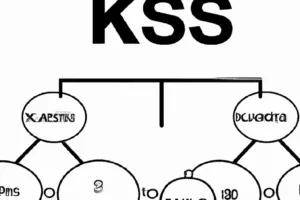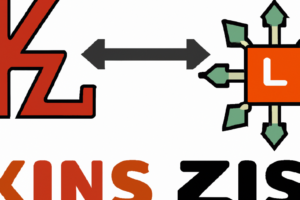
Crowdsourcing personal data for longevity research offers a more holistic understanding of human health and enables better recommendations for care.
Blockchain and artificial intelligence (AI) have long been heralded as technologies that could revolutionize various industries. In the realm of identity and verification, these innovations have the potential to reshape how we view personal data. Now, a groundbreaking wellness app called Rejuve.AI is leveraging the power of blockchain and AI to accelerate longevity research. By crowdsourcing personal health data from users around the world, Rejuve.AI aims to fill data gaps and provide a more comprehensive understanding of human health and longevity.
Accelerating Longevity Research through Crowdsourced Data:
Jasmine Smith, CEO of Rejuve.AI, spoke with Cointelegraph at the recent Cardano Summit and highlighted the importance of democratizing access to data. Currently, core data sets used in longevity research are limited to Western populations, leaving significant gaps in knowledge. By crowdsourcing data from diverse sources, including Africa, Asia, and the Middle East, Rejuve.AI aims to paint a more holistic picture of human health and offer better recommendations for personalized care.
Smith emphasized that Rejuve.AI's goal is not to replace doctors and clinicians but to assist them in their work. The app encourages open-source development, allowing users to contribute to the AI platform and improve algorithms. This collaborative approach enables the creation of multiresolution simulations based on various factors, further enhancing the accuracy and efficacy of the app's recommendations.
Democratizing Access to Longevity Research:
Rejuve.AI operates as a decentralized longevity research network, incentivizing users to contribute their personal health data in exchange for rewards in the form of tokens. These tokens can be used within the platform to access other products and services. The data collected from users is then utilized to develop advanced test kits, such as genome sequencing, DNA methylation, and biological age tests. These tests are typically inaccessible to the average individual but can provide valuable insights into one's health and aging process.
Addressing Concerns and Philosophical Debates:
Some may question whether incentivizing data contribution trivializes the importance of longevity research. Smith argues that people naturally desire rewards for their efforts, especially when it comes to sharing personal health data. By providing incentives, Rejuve.AI acknowledges this inherent desire and encourages greater participation. Smith believes that the power of Web3, the decentralized web, extends beyond tokens and rewards. The research conducted through Rejuve.AI has the potential to yield groundbreaking discoveries that benefit society at large.
Regarding the philosophical debate surrounding extending human life, Smith clarifies that Rejuve.AI does not force individuals to pursue longevity beyond their comfort levels. Instead, the project aims to push the boundaries of science and technology to create opportunities for anyone motivated to extend their lives. The goal is to make longevity research accessible to all, not just the wealthy, and to empower individuals to make informed decisions about their health and well-being.
The Role of AI in Healthcare:
Smith acknowledges that AI will not replace humans entirely but rather enhance their roles in healthcare. AI can streamline workflows, simplify data tracking, and provide individuals with a more direct and detailed understanding of their health. By connecting individuals to the outcomes that arise from their data contributions, AI can foster a sense of ownership and empowerment over one's health journey.
Rejuve.AI represents a pioneering effort to leverage blockchain and AI in the field of longevity research. By crowdsourcing personal health data, the app aims to fill data gaps and provide a more comprehensive understanding of human health and longevity. While concerns and philosophical debates exist, Rejuve.AI's approach of incentivizing data contribution acknowledges the innate desire for rewards and fosters collaboration in the pursuit of scientific advancements. As AI continues to evolve, it has the potential to revolutionize healthcare, empowering individuals and healthcare professionals alike. The intersection of blockchain, AI, and longevity research holds promise for a future where personalized care and extended lifespans are within reach for all.

Alejandro Rodriguez, a tech writer with a computer science background, excels in making complex tech topics accessible. His articles, focusing on consumer electronics and software, blend technical expertise with relatable storytelling. Known for insightful reviews and commentaries, Alejandro's work appears in various tech publications, engaging both enthusiasts and novices.
Follow us on Facebook







